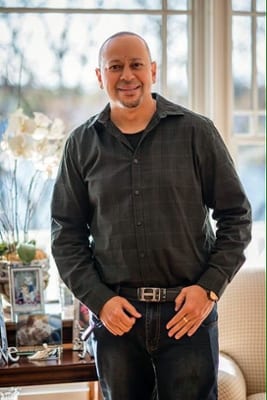BOSTON — The Lynn City Council has quietly spent $450,000 to fight a lawsuit by a man who spent two decades in prison for a murder he didn’t commit.
If Lynn loses the case, it could plunge the cash-strapped city to the edge of fiscal disaster with taxpayers stuck with the tab in the millions. But two City Hall officials said they are not worried about the case or any potential judgment.
Angel Echavarria was imprisoned for 21 years for the 1994 murder of a Lynn drug dealer. He walked out of an Essex County Superior courtroom a free man in 2015 after Judge David Lowy dismissed the murder conviction. In his decision, the judge said flawed evidence and an ineffective defense lawyer contributed to setting Echavarria free.
“… The commonwealth presented no physical evidence linking Mr. Echavarria to the murder and witness Isidoro Rodriguez‘s testimony, upon which the state’s case depended entirely, was problematic in more ways than one,” Lowy wrote. “The weakness of the state’s case, along with the performance of Mr. Echavarria’s counsel … leaves the court with a compelling belief that justice may not have been done in this case.”
Essex County District Attorney Jonathan Blodgett later dropped all charges.
Under a state law that provides financial compensation to the wrongly imprisoned, Massachusetts Attorney General Maura Healey’s office provided Echavarria with $450,000, or $21,438 per year of imprisonment.
One year after his release, Echavarria, now 52, filed suit in U.S. District Court for an unspecified amount of damages. He alleges the Lynn and Massachusetts State Police officers who investigated the shooting death of Daniel Rodriguez fabricated and suppressed evidence, and framed him.
In addition, the lawsuit alleged the Lynn police officers failed to tell the defense that a key eyewitness had unequivocally identified another man as the killer. It was a man who police had arrested for a similar shooting weeks earlier, the complaint said.
Instead of investigating the perpetrators of the murder, the officers named in this lawsuit framed Echavarria for something he had not done, the suit said.
A Massachusetts Public Records Law request of the city revealed Lynn has paid attorney Thomas Kiley of Boston law firm Cosgrove, Eisenberg & Kiley for more than 1,100 hours at $380 per hour since 2016. The bills continue to mount and are expected to accelerate when the trial begins next summer.
The firm failed to convince U.S. District Court Judge Allison Burroughs to dismiss the suit.
“The court concludes that the complaint contains sufficient factual detail to indicate a plausible claim for relief,” she wrote.
City Solicitor George Markopoulos said he has confidence in the Lynn Police Department, its officers, and this case.
“We expect a positive outcome,” he said.
Michael Bertino, Lynn’s chief financial officer, said he was vaguely familiar with the case but wasn’t concerned.
“It’s not on my radar and I’m not losing sleep over it,” he said.
“I’m worried about balancing the budget and making sure we are headed in the right direction. I can’t worry about something that’s out of my control. I’m worried about managing the day to day operations in the city and how we can improve our schools and public safety.”
Attorneys who have tried this kind of case said the costs to defend the allegations could reach $6 million and the judgment could reach as much as $21 million. In addition, if the city loses, Lynn could be assessed Echavarria’s lawyers’ fees and court costs.
The city is not insured for such a suit, according to the city’s Law Department.
Echavarria’s attorney, Mark Loevy-Reyes of Loevy & Loevy, said he is confident of victory. He declined further comment and wouldn’t make his client available.
A recent lawsuit won by the Chicago-based law firm may suggest how they will approach the Lynn case. Last summer, the team represented Jacques Rivera, now 52, who was convicted of the 1988 gangland killing of a 16-year-old boy in Chicago. The only evidence tying him to the crime was a 12-year-old eyewitness who repeatedly failed to identify Rivera as the shooter, the complaint said.
Not only was the witness unable to finger him, the boy identified the actual shooter, according to Rivera’s lawsuit. In closing argument, Loevy asked jurors for $1 million to $2 million per year for the 21 years that Rivera spent in prison.
The federal jury awarded Rivera $17 million. Having lost the case, the city must also pay the plaintiff’s legal fees and expenses estimated at as much as $6 million.
Last month, a federal jury in Springfield awarded $27 million — $1 million for every year he was imprisoned — to a man who was jailed for a killing he insisted he didn’t commit.
Mark Schand, 55, sued four now-retired Springfield police officers he alleged framed him for the 1986 killing of a woman outside a club. Authorities say the victim was an innocent bystander who caught a stray bullet in the back after a drug deal went awry.
Mayor Thomas M. McGee and City Council President Darren Cyr declined to comment on the impact of any judgment against the city or how they would pay for it.
The city’s budget is $368 million. If the judgment were $1 million for each year Echavarria was incarcerated, it would total $21 million, plus attorney fees, it could reach as much as $27 million. That’s more than 7 percent of the budget.
One person who has intimate knowledge of the city’s finances is Sean Cronin, deputy commissioner of local services for the Department of Revenue. He has tried to guide Lynn on how to save money in the wake of the $14 million state loan to balance its 2018 and 2019 budgets.
“Any award of that size would obviously have a significant financial impact on the city,” he said.

